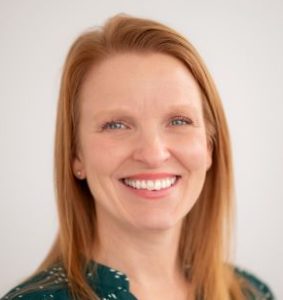

When the Centers for Medicare & Medicaid Services issued its new behavioral health strategy last week, the phrase “nursing home” was strangely absent from the outline.
But given all the attention it has streamed on skilled nursing lately, the agency will surely expect more from providers on that front, too. It can’t be a surprise, given changes to the Requirements of Participation that emphasized trauma-informed care and limiting the use of psychotropic drugs, as well as depression-screening measures that feed quality scores.
Many operators have started to prepare for more frequent mental health needs, building out networks and partners who can help identify specific behavioral needs of their skilled care patients. Getting better at spotting changes in cognition and memory is just the start. CMS will also be putting greater emphasis on addressing pain and substance abuse and delivering quality treatments — and not just through medication.
The agency has said it will focus on:
- Broadly improving access and quality of mental healthcare and services
- Providing better access to substance use disorders prevention and treatment in a variety of settings, which would include nursing homes where such patients may come to recover from short-term health conditions.
- Ensuring effective pain treatment and management
- Promoting equity and person-centered care that addresses language barriers and cultural needs, whether delivered in-person or through telehealth
- Using data for effective actions and impact on behavioral health
How all of this will play out for nursing home operators is unclear. But there can be little hope that the spikes in depression, anxiety and other mood disorders associated with pandemic will resolve themselves.
We are a more-stressed nation, living in a more stressful time in a stressed-out world.
Today’s children, too, are reporting more mental health struggles than ever before, meaning this looks to be a long-term crisis. The struggles of people who are children today will still in some ways be with them as they age.
While we’ve on one hand gotten better at talking about behavioral health disorders, many of us are still guilty of stereotyping what the diagnosed must look like.
How many nursing homes have resisted taking patients with coexisting but controlled behavioral health disorders because they fear a reputational backlash? It’s hard to quantify, but the continued reluctance of many providers in Massachusetts to admit patients who need skilled care and medication-assisted therapy for a substance use disorder (SUD) tells part of the story.
Federal strategy will undoubtedly continue to target providers who reject patients with behavioral diagnoses without cause. But there is also a shifting acknowledgement from regulators that while some individuals with acute behavioral needs need care in a separate setting, many among us will just need help managing ADLs or other needs while keeping behavioral conditions in check. Why can’t those two needs be met in a nursing home?
Connecticut-based iCare Health Network takes SUD patients and many more with a range of behavioral needs, a population that has evolved since the company started in the early 2000s.
One thing that has been a constant for CEO Chris Wright is the effort to educate not just about previously taboo topics such as drug use and HIV but even about more typical diagnoses of bipolar disorder, or potentially, sub-acute schizophrenia.
iCare manages six behavioral health units, often co-located on the same campus as or in a secure part of a building shared with a traditional skilled nursing unit. The company also offers in-demand specialty treatments and has been successful in keeping beds full on both ends by committing to conversations about conscientious, compassionate care.
“There’s a stigma that people have or maybe even a fear, but when you go walk down any of our behavioral units, are the residents more ambulatory, yes? They’ll come up and talk to you. But they’re not harmful; they’re just like anyone else,” Wright told me last week. “If you have a mother or loved one that you put in the nursing home and you realize, oh, they have a behavioral unit, It just takes a lot of education for that family. They tour the building and see the program and it alleviates a lot of that stigma that people may have.”
With the latest dispatch from CMS, it’s becoming abundantly clear that more providers will need an education of their own. The time to hit the books is now.
Kimberly Marselas is senior editor of McKnight’s Long-Term Care News.
Opinions expressed in McKnight’s Long-Term Care News columns are not necessarily those of McKnight’s.




